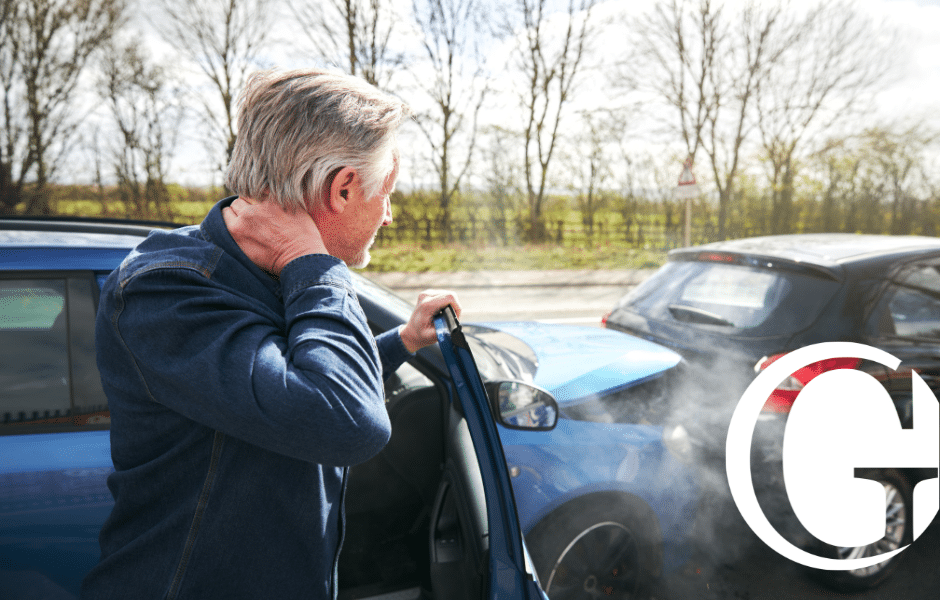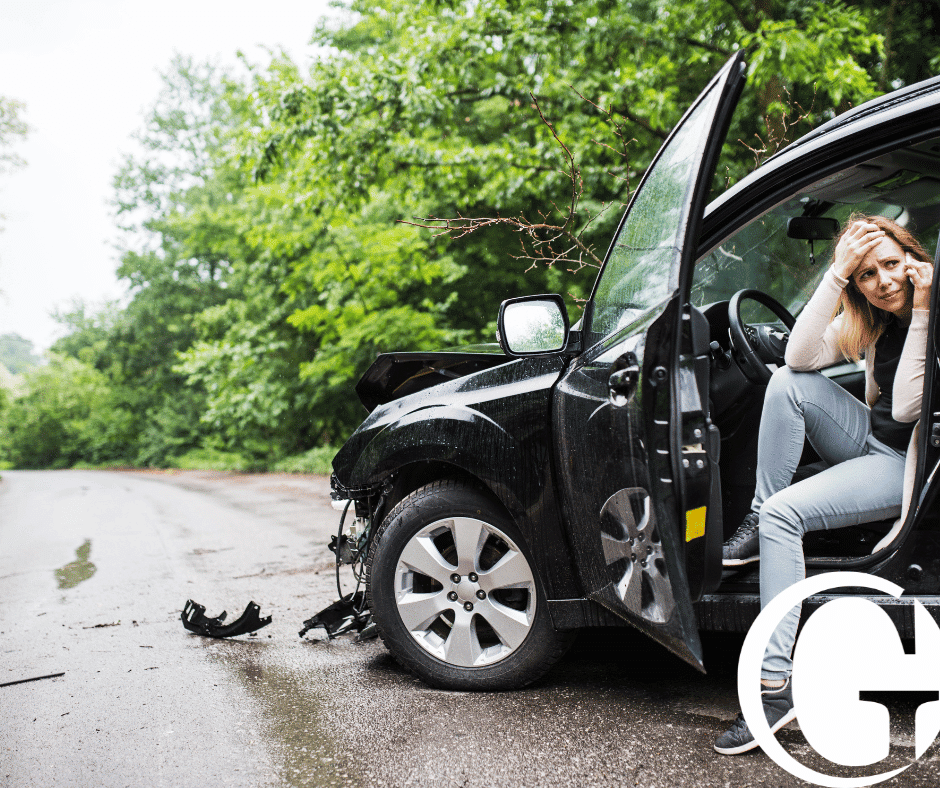Concussion Injury Guide
Any type of injury to the head can be catastrophic, especially a concussion. Head and brain trauma can be life-altering to the victim and their loved ones. If you believe you or a loved one have a concussion, seek medical care right away. Once your immediate health needs are addressed, an Ohio personal injury attorney can help you understand your legal options if someone else’s negligence caused the injury.

Legally Reviewed by:
Mark S. Gervelis, Esq.
Last Updated:
- November 25, 2025
KEY TAKEAWAYS
- Concussions often result from car crashes, falls, sports injuries, workplace accidents, or violent acts, all of which involve sudden head movement or impact.
- Concussion symptoms can appear immediately or hours or even days later. A health care professional should evaluate any suspected head injury.
- Rest and gradual return to activity are essential for recovery, with medical supervision to monitor symptoms. Avoid physical exertion, screen time, and alcohol until cleared by a doctor.
- Repeated concussions can cause lasting effects. Proper care and prevention are crucial to avoid permanent brain damage.
- Multiple negligent parties may be liable for concussion injuries. Victims can pursue compensation for various damages.
In this guide, we will look at the common causes of concussions, signs to be aware of, steps to take if you believe you have suffered a concussion, and how to navigate a legal claim. For more information and support from an experienced attorney, contact our law office today.
What Are Some Common Causes for a Concussion?
Several different accidents can lead to a concussion, including the following:
- Car Crashes – Sudden stops, impacts, or accidents can lead to a concussion if the head jerks or hits an object.
- Slips, Trips, and Falls – Falling, especially for older adults, is a leading cause of concussions.
- Sports Injuries – A head injury can occur in any type of sport, but they are especially common in football, soccer, and hockey.
- Workplace Accidents – Workplaces such as construction sites and industrial settings are particularly high-risk for head injuries.
- Violent Acts – Assaults or other violent incidents can result in head injuries.

Signs Someone Has Suffered a Concussion
When you suspect a concussion in either yourself or a loved one, there are numerous signs and symptoms to look for, some more apparent than others.
Most Apparent Signs of a Concussion
- Loss of consciousness
- Dazed appearance
- Amnesia, confusion, or disorientation
- Slurred speech or difficulty communicating clearly
- Clumsy movements or loss of balance
- Headache or pressure in the head
- Nausea or vomiting soon after impact
- Visible changes in behavior or emotions, such as irritability and agitation
Lesser Apparent Signs of a Concussion
- Difficulty concentrating or remembering
- Fatigue or low energy
- Sensitivity to light or noise
- Sleep disturbances
- Blurred or double vision
- Changes in mood, like anxiety or depression
- Headache that worsens over time
- Dizziness or balance problems that show up later
These less obvious symptoms may appear hours or days after the injury and should be taken seriously. Seeing a doctor promptly and documenting your symptoms can protect both your health and any future injury claim.

What Are the Treatment Options After Suffering a Concussion?
Several treatment options are available for individuals who suffer from a concussion. However, recovery may vary from person to person. For minor head injuries, rest, a gradual return to activities, and symptom management are key.
For persistent symptoms, specialized therapies may help. These can include physical therapy to address balance and strength, vestibular therapy for dizziness, occupational therapy to rebuild daily skills, or vision therapy to address eye-tracking issues. Your provider may also suggest medications to manage headaches, sleep problems, or mood changes.
Regardless of how severe your concussion appears to be, it is essential to see a health care professional who can perform a proper evaluation. They can develop a treatment plan and determine if further intervention, such as a CT scan, is needed.
What Should You Not Do if You Have a Concussion?
It is a well-known myth that someone suffering from a concussion should not go to sleep. In fact, rest is a crucial part of recovery and healing. However, there are still other things to avoid after a head injury.
- Physical Activity – A concussion can make you much more susceptible to fatigue and fainting. Strenuous movements and exercise should be avoided during the initial recovery phase and until your doctor clears you, because they can worsen symptoms or delay healing.
- Screen Time – Spending too much time staring at a screen can hinder concussion recovery due to light sensitivity, eye strain, and cognitive overload. Bright light, blue light, and fast-moving images can worsen symptoms such as headaches, dizziness, and nausea.
- Alcohol and Drugs – Substance use is especially dangerous for individuals with a concussion. Using drugs and alcohol with a brain injury will increase your chances of having a seizure, even if you were low risk before your accident.
- Rushing Back to Work or School – It is vital that you do not to return to work or school immediately after a concussion. Doing so can impede your recovery and even worsen symptoms.
What Are the Long-Term Effects of a Concussion?
Fortunately, many people recover fully from a concussion. However, some may experience lasting effects that impact their quality of life.
- Post-Concussion Syndrome – PCS is a complex health condition where concussion symptoms persist for more than three months after the initial injury. Symptoms can include headaches, fatigue, dizziness, and difficulty concentrating.
- Chronic Traumatic Encephalopathy – CTE is a progressive degenerative disease of the brain linked to repeated head trauma from activities like contact sports or military service. It can cause a range of cognitive, behavioral, and mood changes, including memory loss, confusion, aggression, depression, and impulsivity.
- Increased Risk of Future Injuries – One concussion increases the risk of future concussions, with subsequent concussions potentially requiring longer recovery times and occurring with less force.
- Impact on Mental Health – Brain damage can lead to changes in personality and cognitive function. Additionally, the physical effects of a concussion can lead to a reduced quality of life, causing depression in the individual.
What Are the Effects of Repeated Concussions?
Repeated concussions and prolonged symptoms can have a significant impact on a person’s physical and mental well-being. For instance, cumulative damage can take place because the brain does not have time to fully heal. These built-up disruptions in cognitive functions can lead to an array of long-term issues, such as slower reaction times, persistent headaches and dizziness, emotional instability, and a reduced attention span.
Multiple concussions also put you at risk of Chronic Traumatic Encephalopathy. CTE is a progressive, degenerative brain disease caused by cell death and brain tissue loss. A variety of symptoms can manifest from CTE, such as mood changes, memory loss, speech and gait difficulties, and increased aggression. However, these signs typically appear years or even decades after the last concussion, making the condition difficult to diagnose.
Overall, repeated concussions can lead to long-term cognitive decline. Individuals may experience a reduction in essential abilities, including memory, executive function, and learning capacity. It also puts you at risk of dementia and Alzheimer’s symptoms, as well as persistent brain fog and decreased mental clarity.
From a legal perspective, evidence of repeated concussions can be critical in proving long-term medical needs, reduced earning capacity, and pain and suffering—especially in cases involving contact sports, dangerous workplaces, or multiple car crashes. To learn more or to secure help with your case, call our seasoned attorneys today.
Who Is Liable if You Are Suffering From a Concussion?
Depending on the details of the accident, several different parties could be held responsible for your concussion.

At-Fault Drivers
In motorcycle, truck, or car accidents, another driver may be held liable, especially if it can be proven that they were negligent, such as by texting while driving, being under the influence of alcohol, or speeding.
Employers
If your concussion happened on the job—especially on a construction site or in a factory—your employer may be responsible through workers’ compensation and, in some cases, additional third-party claims.
Sports Organizations
In organized sports, teams, leagues, or schools may be liable if they ignored concussion protocols, failed to provide proper safety equipment, or sent a player back into the game too soon after an initial head injury.
Property Owners
In slip and fall accidents, the property owner or manager may be liable for failing to maintain a safe environment.
Identifying who is at fault for your head injury is crucial in seeking compensation for your medical expenses, lost wages, and pain and suffering. Our Ohio personal injury attorneys know what evidence to look for and how to hold negligent drivers, employers, property owners, and others accountable.
What Compensation Is Available as a Result of a Concussion?
After suffering a concussion as a result of another’s negligence, you could be entitled to compensation for both economic and non-economic damages. Economic damages are the tangible losses you experience, such as:
- Medical bills
- Lost wages
- Long-term care costs
Non-economic damages are the subjective, harder-to-calculate losses from a personal injury, including:
- Pain and suffering
- Emotional trauma
- Reduced quality of life
Legal Options if You Are Suffering From a Concussion
If you or your loved one has sustained a concussion in an accident, know that you have legal options available to you. You may be able to file a personal injury or workers’ compensation claim, depending on the situation that led to the head injury.
At Gervelis Law Firm, we know Ohio and we are here for you when you need us most. Our knowledgeable and compassionate attorneys can work closely with you, answer your questions, and help determine the strength of your claim, identify all at-fault parties, and pursue fair compensation on your behalf. Contact our law office today at 866-792-2728 to schedule an initial consultation.
